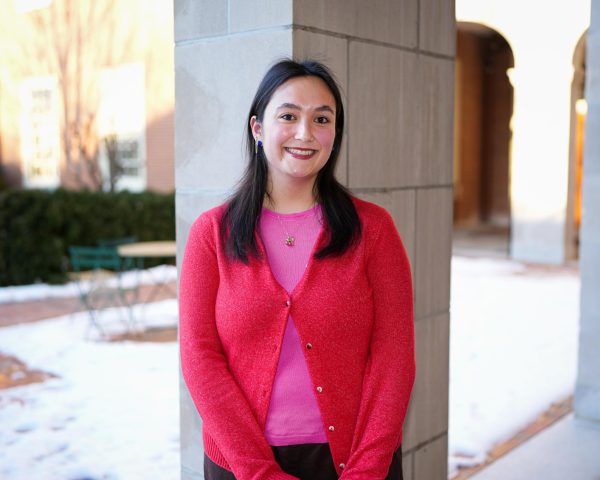Students, staff and faculty may remember the Pitsgiving reserved table, priority housing registration times and basketball tickets that were raffled earlier this year as incentives to encourage participation in the first enterprise-wide campus climate survey. Nearly a year later, the University is analyzing and sharing the 3,865 completed survey responses to gain better insight into the Wake Forest community.
Three interactive forums, which took place on Oct. 31 for students and Nov. 1 and Nov. 2 for staff and faculty, were held for community members to hear the survey results and discuss how they can be used to improve the campus climate.
The results
The results were generally positive. Overall, 84% of students were both satisfied with their academic experiences at Wake Forest and felt valued by faculty. Approximately 77% of students felt generally accepted by others. Staff and faculty also produced positive results: 94% felt that they complete meaningful work at Wake Forest, and 78% indicated that they are proud to work at the University.
However, the survey results demonstrated that various marginalized groups on campus generally felt a lower sense of belonging and comfortability on campus. These differences were observed especially in respondents who identified as Black, first generation, gender non-conforming and those with queer spectrum identities.
Approximately 17% of student respondents said that they had experienced some form of exclusionary conduct within the last 12 months of completing the survey, and 31% of student respondents have experienced exclusionary conduct at some point during their time at Wake Forest. 21% of staff and faculty respondents had experienced exclusionary conduct within the last 12 months, and 31% had experienced it at some point during their time at the University. When asked why they believed they had experienced such, respondents in both groups cited racial identity, socioeconomic status and gender identity as the basis for the exclusionary conduct.
Dr. José Villalba, vice president for diversity and inclusion and chief diversity officer, said that while the results were aligned with trends from other universities and were not surprising, it is of concern that marginalized groups continuously feel a lower sense of belonging on campus.
“If we’re consistently in this space where underrepresented students don’t feel like they belong and don’t feel as comfortable with the climate as people in the majority of people who are affluent,” Villalba said, “then we need to mitigate those feelings of exclusion.”
Villalba also said that the survey is intended to help the university better follow its strategic framework vision.
“One of the things to keep in mind is the strategic framework that was shared by [President Susan R. Wente] a couple of years ago,” Villalba said. “We need to make sure that whatever we end up doing aligns with those three themes. We are a community of lifelong learning; we are a community of inquiry; and we are a community of partnerships.”
How the survey was conducted
To conduct the survey, Wake Forest partnered with Rankin Climate, a company that has administered climate surveys for over 30 years at more than 200 universities. To assess campus climates, Rankin completes an environmental scan, which assesses policies and practices to gain context for a university’s climate. Using this information, Rankin created a survey consisting of 82 questions, though most participants received only a subset of the question bank.
Vice President of Campus Life Shea Kidd Brown, who facilitated the forums, reminded participants to listen to the survey results with an open mind. She also emphasized the importance of empathy when considering the responses others gave.
“As we ground ourselves in the work, I really want you to think about the human side of all of this.” Kidd Brown said. “ You’re going to see percentage points, and you’re going to see quotes that are thematic of a particular area. And I want you to realize that every end that you see is a lived experience.”
In an interview with the Old Gold & Black, Kevin Swartout, executive vice president of Rankin Climate, echoed the importance that smaller-level interactions can have in individual experiences on campus.
“Wake Forest is this big institution, and there are certainly some institutional solutions through policies and procedure,” Sawrtout said. “But there’s also solutions that are going to be at a lower level. Generally, people feel safe and supported on campus, but everyone’s experience is different, and that experience is different based on their identity in a lot of cases. So it’s important to consider what can be done at a more kind of specific level on campuses to address more specific student experiences.”
There will be another virtual forum for those who did not attend the first three, which will take place on Dec. 5 from 1-2:30 p.m. and will be open to all community members. The meeting will be held via Zoom.
















